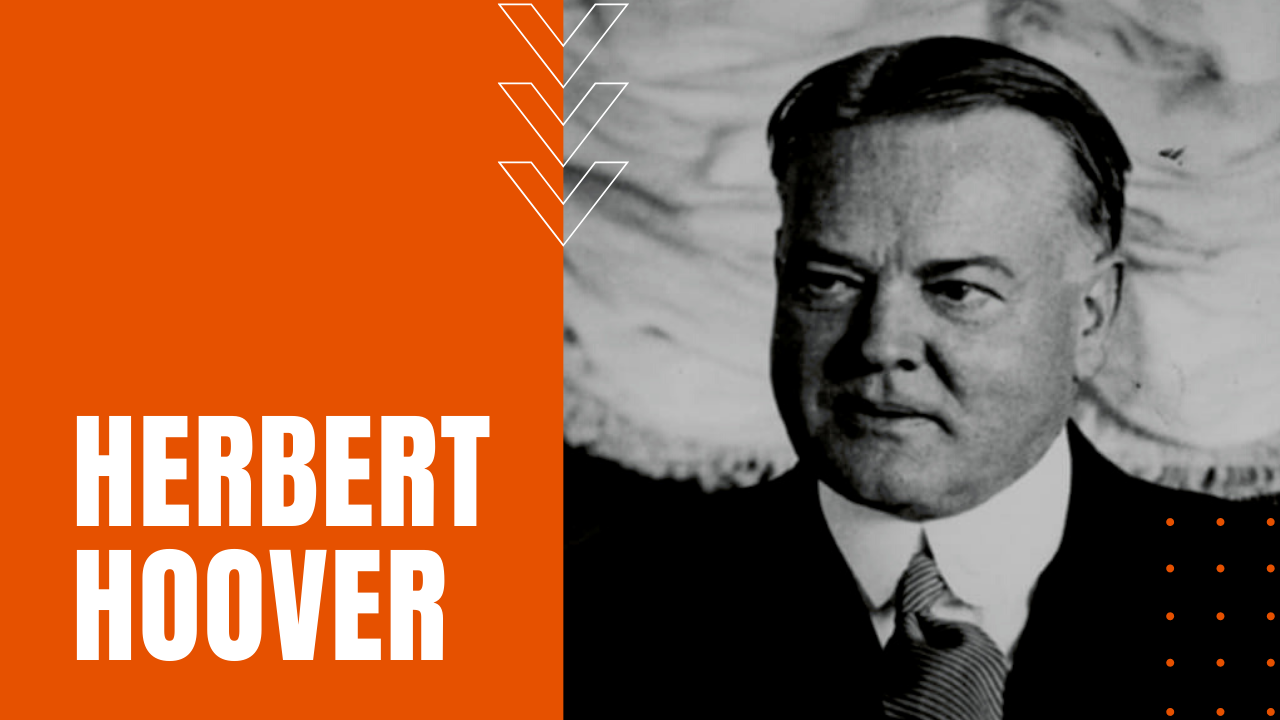Herbert Hoover: Orphan, Miner, Humanitarian and President

Born in West Branch Iowa in 1874—later to become the first U.S. president born west of the Mississippi—Herbert Clark Hoover was orphaned at age nine, forcing a move to Oregon to be raised by an uncle.
After attending Quaker schools up through high school, Hoover studied geology at Stanford University, before traveling the world in search of valuable mineral deposits, growing rich from his entrepreneurial mining operations that made him a multi-millionaire.
He married his college sweetheart, Lou Henry, in 1899, and together they raised two boys to adulthood.
Hoover’s Humanitarian Efforts and Presidential Appointment
After the start of World War One, Hoover dedicated himself to humanitarian works, helping to repatriate 120,000 stranded American tourists caught in Europe when hostilities commenced, later coordinating the delivery of food and supplies into Belgium following Germany’s invasion and occupation.
After President Woodrow Wilson appointed Hoover director of the Food Administration, Hoover became a household name when he encouraged Americans to reduce their consumption of meat to ensure that adequate supplies of food and clothing could fully support Allied troops in Europe. At war’s end, Hoover earned worldwide acclaim when he arranged shipments of food to destitute Europeans, receiving thousands of thank you letters from those who had benefited from what Europeans called “Hoover lunches.”
President Hoover
Hoover’s success later earned him appointments in the Harding and Coolidge administrations, finally ascending to the White House in the landslide presidential election of 1928. Much to his bad fortune, seven months after taking office, America entered the Great Depression after the stock market crash of 1929, which forced unemployed Americans into food lines and shantytowns that became known derisively as Hoovervilles.
A political conservative, Hoover believed strongly that excessive federal intervention into the nation’s failed economy posed a threat to capitalism, causing most Americans to view Hoover as callous, insensitive and uncaring over the plight of so many destitute Americans. As a result, Hoover was soundly defeated in the presidential election of 1932, ushering in Franklin D. Roosevelt, who would become the only four-term president in American history.
After his single term in office, Hoover became a prominent and persistent critic of FDR’s New Deal policies, writing articles and books that warned against excessive power in the federal government. He returned to public service in the 1950s, serving on government efficiency commissions for the administrations of Harry S. Truman and Dwight D. Eisenhower.
He passed away at age 90 in 1964, at a time when his legacy had grown more favorable after Americans saw eight more years of Great Depression hardship, despite Roosevelt’s New Deal attempts to stimulate the economy.
